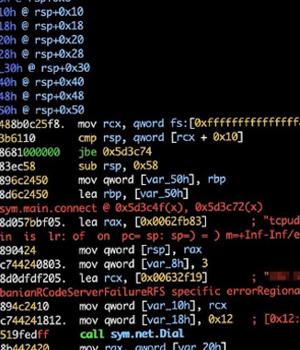Security News > 2022 > November > New KmsdBot Malware Hijacking Systems for Mining Crypto and Launch DDoS Attacks

A newly discovered evasive malware leverages the Secure Shell cryptographic protocol to gain entry into targeted systems with the goal of mining cryptocurrency and carrying out distributed denial-of-service attacks.
Dubbed KmsdBot by the Akamai Security Intelligence Response Team, the Golang-based malware has been found targeting a variety of companies ranging from gaming to luxury car brands to security firms.
It's also equipped to control the mining process and update the malware.
Akamai said the first observed target of the malware was a gaming company named FiveM, a multiplayer mod for Grand Theft Auto V that allows players to access custom role-playing servers.
The DDoS attacks observed by the web infrastructure company include Layer 4 and Layer 7 attacks, wherein a flood of TCP, UDP, or HTTP GET requests are sent to overwhelm a target server's resources and hamper its ability to process and respond.
Nearly half of the analyzed samples of malicious mining software secretly mine Monero.
News URL
https://thehackernews.com/2022/11/new-kmsdbot-malware-hijacking-systems.html
Related news
- North Korean hackers adopt ClickFix attacks to target crypto firms (source)
- Open-source malware doubles, data exfiltration attacks dominate (source)
- Microsoft Warns of Tax-Themed Email Attacks Using PDFs and QR Codes to Deliver Malware (source)
- DDoS Attacks Now Key Weapons in Geopolitical Conflicts, NETSCOUT Warns (source)
- New TCESB Malware Found in Active Attacks Exploiting ESET Security Scanner (source)
- Crypto Developers Targeted by Python Malware Disguised as Coding Challenges (source)
- Node.js Malware Campaign Targets Crypto Users with Fake Binance and TradingView Installers (source)
- Multi-Stage Malware Attack Uses .JSE and PowerShell to Deploy Agent Tesla and XLoader (source)
- New Android malware steals your credit cards for NFC relay attacks (source)
- Hackers Abuse Russian Bulletproof Host Proton66 for Global Attacks and Malware Delivery (source)